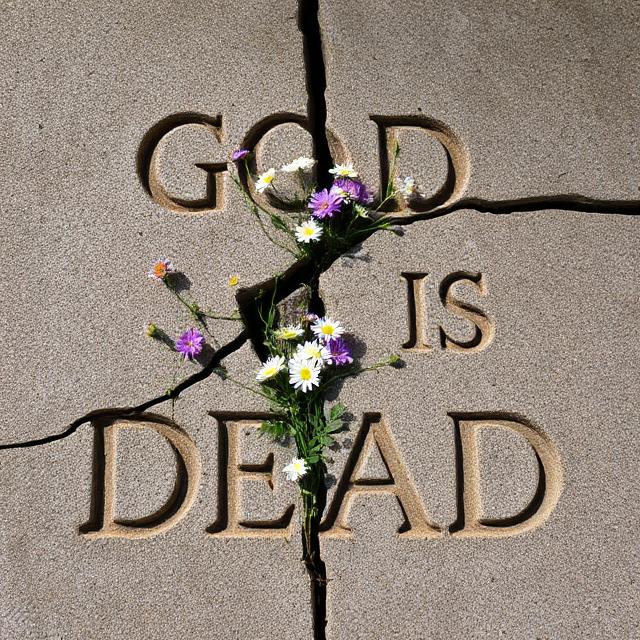
Table of Contents
Nietzsche Postmodernism: The Unfolding of a Radical Mind
When we speak of “Nietzsche postmodernism,” we’re not referring to a simple line of inheritance, but to a philosophical detonation that shattered the foundations of Western metaphysics. Friedrich Nietzsche (1844–1900) began his career as a classical philologist, a meticulous scholar of Greek and Roman texts. Yet he would become one of the most disruptive voices in modern intellectual history—a bridge between ancient wisdom and the chaotic freedom of postmodern thought.
This journey—from language and myth to nihilism and perspectivism—tells the story of how a scholar of antiquity became the philosopher who paved the way for Foucault, Derrida, and countless others who questioned the very nature of truth, morality, and the self.
I. The Classical Roots: Philology and the Birth of Tragedy
Nietzsche was appointed professor of classical philology at the University of Basel at the astonishingly young age of 24. His early work, The Birth of Tragedy (1872), reveals how deeply steeped he was in Greek thought. But even here, the seeds of radical critique were visible.
Apollonian vs. Dionysian:
Nietzsche contrasted the structured, rational beauty of Apollo with the ecstatic, chaotic energy of Dionysus. For him, true art—and true life—emerged from the tension between these forces.
He argued that Greek tragedy unified these opposites, but that Socratic rationalism later dismantled this balance, leading to the decline of Greek culture. This marked the beginning of his critique of rationalism, morality, and truth as absolute.
II. The Death of God and the Crisis of Meaning
One of Nietzsche’s most famous proclamations—God is dead—appeared in The Gay Science (1882) and again in Thus Spoke Zarathustra (1883–85). This is not a theological claim, but a cultural diagnosis: the metaphysical underpinnings of Western civilization had collapsed.
What Does It Mean?
“God is dead” means that traditional values—grounded in Christian morality, Platonic truth, and Enlightenment reason—no longer command belief in a modern, scientific age. In their place, nihilism arises: the recognition that life has no inherent meaning.
This radical notion would become foundational for postmodernism. Nietzsche’s exposure of the fragility of metaphysical constructs set the stage for later thinkers to question all forms of ideological certainty.
III. Will to Power and the Revaluation of Values
Nietzsche believed that in the absence of divine authority, we must become creators of our own values. This idea culminates in his concept of the will to power—a fundamental drive not merely to survive, but to assert, create, and overcome.
The Overman (Übermensch):
In Thus Spoke Zarathustra, Nietzsche introduces the Overman, a figure who has transcended herd morality and lives according to self-created values. This is not a blueprint but an existential challenge: can we live without crutches, without appealing to absolutes?
Postmodern thinkers like Michel Foucault would echo this call to genealogy—to investigate the origins and functions of moral systems, institutions, and truths rather than accept them as given.
IV. Eternal Recurrence and the Challenge of Affirmation
In another of Nietzsche’s haunting ideas—eternal recurrence—he asks whether you would be willing to live your exact life, down to every detail, over and over again, for eternity.
This is less metaphysical doctrine than existential litmus test: Do you affirm life as it is, or do you resent it? Nietzsche urged us to say yes to life, in all its suffering and contradiction.
Postmodernism, in its suspicion of grand narratives and redemptive ideologies, carries forward Nietzsche’s demand that we find meaning not in destination, but in experience, context, and creation.
V. Language, Metaphor, and the End of Objective Truth
In On Truth and Lie in an Extra-Moral Sense, Nietzsche argued that what we call “truth” is nothing but a “mobile army of metaphors.” Concepts are frozen metaphors that hide the chaotic, creative flux of reality.
Implications:
This critique anticipates the poststructuralist view that language does not reflect reality—it constructs it. Jacques Derrida’s deconstruction owes much to Nietzsche’s recognition that meaning is unstable and endlessly deferred.
Nietzsche’s insight demolishes the Enlightenment faith in reason as a mirror of reality. Instead, truth becomes interpretive, situated, and contingent—core tenets of postmodernism.
VI. Influence on Postmodern Thinkers
Nietzsche’s impact can be seen in nearly every major postmodern thinker:
- Michel Foucault adopted Nietzsche’s genealogical method to deconstruct power, sexuality, and madness.
- Jacques Derrida built on Nietzsche’s skepticism toward stable meaning and his metaphorical view of truth.
- Jean-François Lyotard echoed Nietzsche in rejecting metanarratives and embracing pluralism.
- Gilles Deleuze reinterpreted the will to power as a force of continual becoming.
Nietzsche didn’t merely predict postmodernism—he enabled it by providing the philosophical tools to dismantle absolute claims to truth and morality.
VII. Misreadings and Misuses
Nietzsche’s complex, aphoristic style has made him vulnerable to misappropriation. Totalitarian regimes, including the Nazis, twisted his ideas—despite his explicit opposition to anti-Semitism and nationalism.
Likewise, some postmodernists have taken his rejection of truth as license for relativism or nihilism—interpretations Nietzsche himself warned against.
Beyond Relativism:
Nietzsche did not abandon truth; he reimagined it as perspectival—rooted in life, function, and power. His goal was not to destroy meaning, but to liberate it from dogma.
VIII. Conclusion: The Shadow That Liberates
Nietzsche’s journey—from classical philologist to prophet of postmodernism—embodies the collapse and rebirth of Western thought. His critique of truth, morality, and identity tore down the ivory towers of metaphysics and opened space for creativity, irony, and freedom.
To read Nietzsche today is to confront the disintegration of certainty—but also to glimpse a radical affirmation of life, thought, and possibility. His shadow still moves in every classroom, gallery, and protest where voices question inherited truths and invent new ones.
Nietzsche postmodernism is not a footnote in history—it is the ongoing invitation to live without illusions and to create without guarantees.